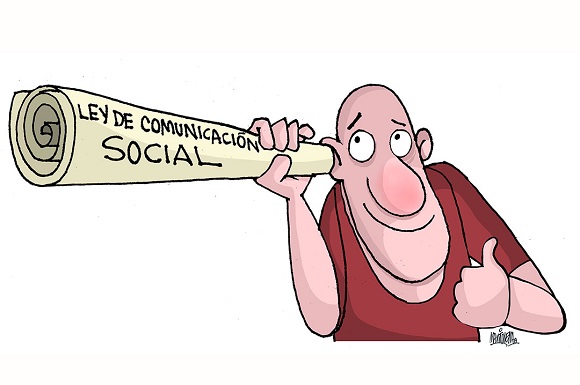The legal instrument and its regulatory standards, which will come into force within 120 days, regulate the Social Communication System for the management of processes in the organizational, media and community spheres, for political, public good, organizational and social and commercial purposes, in public spaces, whether physical or digital.
According to the vice president of the Institute of Information and Social Communication, Onelio Castillo, the approved law has the spirit of dialogue and supports the nation’s political will that defines social communication as a pillar of its development.
In the official presentation of the legal regulations and their regulatory framework, at the Ernesto Che Guevara Hall of Parliament, Castillo highlighted the unprecedented nature of the law in Cuba, which is based on broad consensus with the participation of more than 7,000 experts and a process of debates that allowed increasing its scope and broadening its regulatory boundaries.
He pointed out that at the debates on its regulations, more than 300 opinions were collected, 76 percent of which were incorporated.
According to the president of the Cuban Association of Social Communicators, Rosa María Pérez, this legal regulation meets a need in the country, promotes the development of marketing, advertising and propaganda with a scientific vision, and encourages education and instruction in those topics.
By highlighting the significance of the law, the president of the Union of Journalists of Cuba (UPEC), Ricardo Ronquillo, stated that it reflects the struggles of journalists and communicators over decades and allows progress in the ongoing experiments for the transformation of the model of Cuba’s media.
According to Ronquillo, the institutionalization and constitutionalization of Cuban media and communication system contributes to the democratic conception of socialism promoted by Cuba, which places the press as part of the mechanisms of social and popular control.
He underscored the context in which the law was approved, marked by a complex economic situation that also affects the press, in which media attacks and smear campaigns are aimed at subverting the process of transformations that the nation has defended since 1959 increase.
Humberto Fabián Suárez, member of the drafting commission of the Social Communication Law and president of the Country Brand council, referred to Decree 102 of the standard, on the exercise of advertising and sponsorship, for the preparation of which more than 600 legal provisions were consulted, taking into account the impact of new communication and information technologies.
 Escambray ENGLISH EDITION
Escambray ENGLISH EDITION





Escambray reserves the right to publish comments.